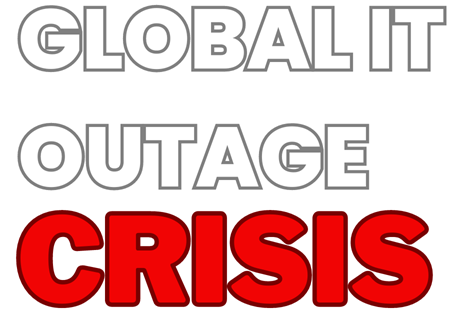
An Australian National University academic says the recent global IT outage has exposed a major issue facing businesses and organisations across the world.
“The widespread outages show the risks in relying on a single technology for vital services,” says Tom Worthington, an honorary lecturer in the School of Computing at the ANU.
“There need to be alternate communication links using different software.
“This does create an added security and maintenance burden, as multiple products need to be looked after and protected. But if you put all your eggs in one basket, you can end up with it on your face.”
He made the comments in the wake of major IT outages that hit industries across the world yesterday, allegedly caused by cybersecurity firm, Crowdstrike.
The BBC reported that the issue, a ‘defect’ in one of its software updates affected Windows operating systems globally, resulting in close to 1,400 flights being cancelled and banking, healthcare and businesses being affected.
According to the BBC, Crowdstrike reported that a fix has been deployed, however, the company says it “could be some time” before systems are back up and fully operational.
Dr Shumi Akhtar, an Associate Professor at the University of Sydney, said yesterday’s technology outage—an unprecedented global crisis—sparked off in the USA, was “now ominously rippling across the globe.”
“This sudden, severe disruption halts everyday activities and starkly exposes the fragility of our heavily digitised world,” she said.
“From banking to healthcare, education to government, no sector remains untouched, highlighting an urgent need for a worldwide strategic overhaul of our critical infrastructures. This crisis calls for immediate collaborative action to enhance resilience through robust safeguards and fail-safes, especially in life-critical networks.”
Dr Akhtar said as a result of the outage, at least three critical sectors could be affected significantly.
“In the medical industry, a technology outage can result in the loss of access to electronic medical records, critical patient data, and communication systems essential for patient care. This could delay surgeries, medication administration, and emergency responses, potentially endangering lives.
“In the banking sector, an outage can cripple financial transactions, including ATM withdrawals, online banking, and payment processing. This disruption can lead to significant financial losses for consumers and institutions, and undermine public trust in the financial system
“For the airline industry, technology outages can ground flights, disrupt ticketing and check-in processes, and affect air traffic control. This can lead to massive delays, financial losses, and compromise passenger safety and security.”